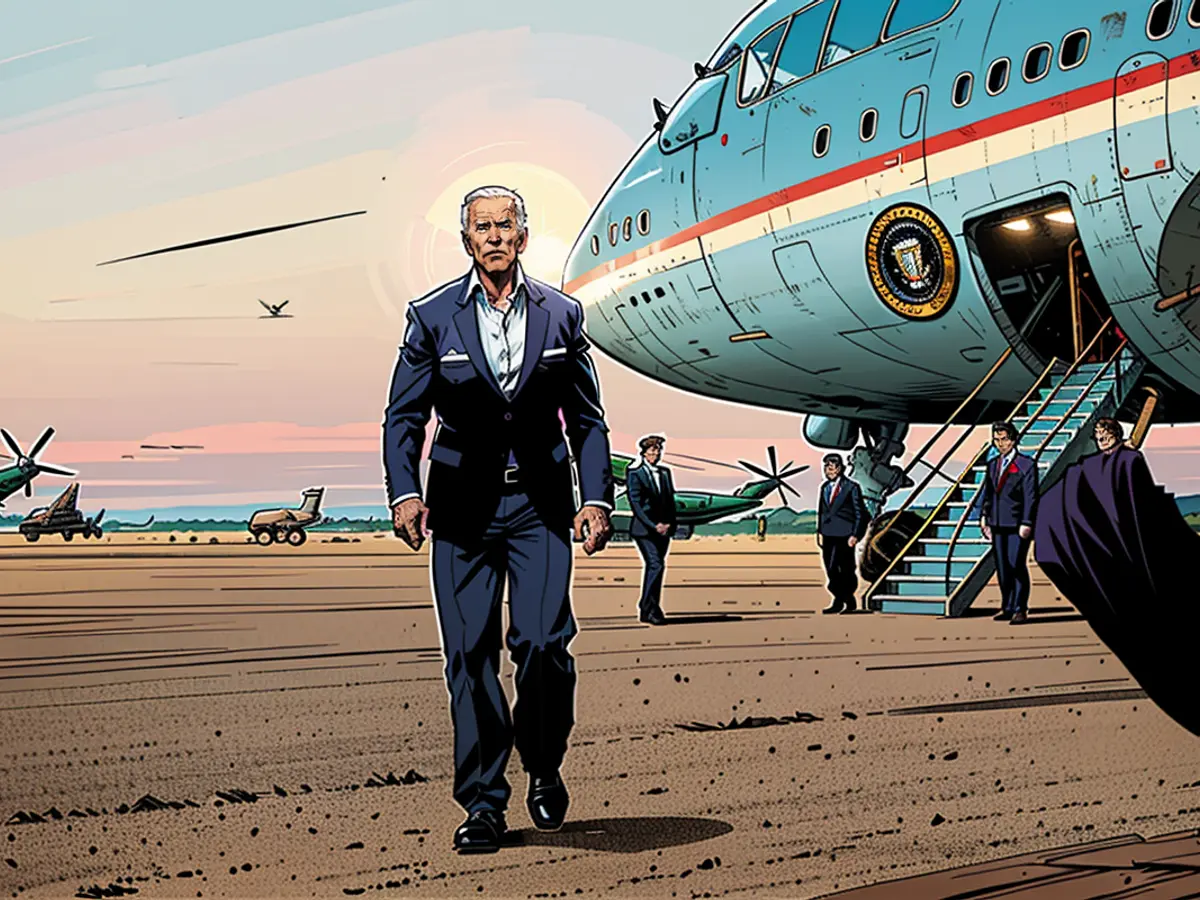Biden expresses opposition to a large-scale military conflict.
The United States and Israel are pondering their next actions after Iran's rocket assault. globally, there's significant worry about an intensification of the issue. Surprisingly, US President Biden lately seems to speak in a soothing manner, but a lot still needs attention.
A full-blown war in the Middle East is still preventable, as per US President Joe Biden. "I don't believe there'll be a full-blown war. I believe we can prevent it," he stated in response to inquiries from the press. "But there's still a lot of work ahead."
Previously, it had been reported that the US and Israel were discussing a reaction to Iran's rocket launchings, including potential strikes on Tehran's oil facilities. There's also chatter about attacks on Iran's nuclear sites.
When probed if he would back such a move by Israel, Biden replied yesterday: "The response is no. We'll talk with the Israelis about what they plan to do." All G7 nations concur that Israel has the right to retaliate against Iran. "However, the response should be proportional," said Biden.
globally, there's growing dread of a major regional conflict in the Middle East. For days, Israel has been conducting substantial air raids against Hezbollah militia, backed by Iran, in Lebanon. The Lebanese Health Ministry reported over 1,000 deaths and hundreds of thousands displaced as a result.
Hezbollah opened a second front against Israel with regular rocket attacks from Lebanon promptly after the radical Islamic Hamas' assault on Israel on October 7 past year. In recent days, Hezbollah's rocket fire has intensified, particularly after the killing of Hezbollah leader Hassan Nasrallah. On Tuesday night, Israel also launched a "limited" ground operation in southern Lebanon. On Tuesday evening, Iran targeted Israel with approximately 200 rockets - for the second time after an attack with hundreds of drones and rockets in April.
The international community is closely monitoring the situation, with concerns escalating towards a potential wider conflict. The United Nations Secretary-General's spokesperson stated that Antonio Guterres "calls upon all parties to exercise maximum restraint and to avoid an escalation." Furthermore, The Commission, a part of the European Union, has urged both Israel and Iran to de-escalate the tensions and engage in dialogue.








